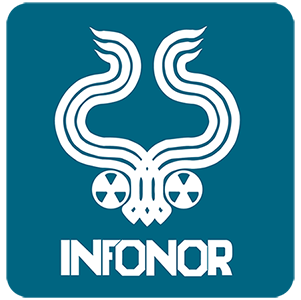Workshop Chair : PhD. Claudio Meneses (UCN – cmeneses@ucn.cl) and Dr. Wilson Castillo (UDA – wilson.castillo@uda.cl)
Organization: Núcleo de Inteligencia Artificial y Data Science. Departamento de Ingeniería de Sistemas y Computación. Universidad Católica del Norte.
Date: Friday, September 03rd
Time: 09:00 (See details in the Schedule)
Playlist: Youtube
The Workshop on Data and Knowledge Engineering (WDKE) is a space for the dissemination of scientific and professional academic activity in the area data and knowledge enginnering, including:
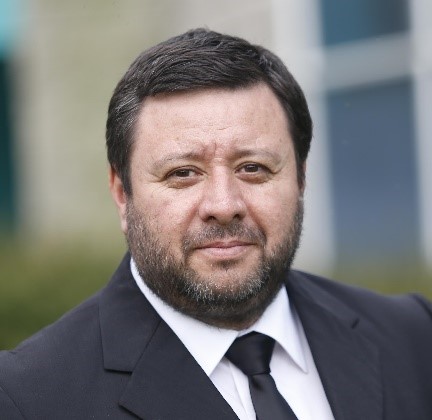
Dr. Marco Mora Cofré
U. Católica del Maule, Talca, Chile.
Translation: Fingerprints are widely used in biometric identification, because they allow distinguishing people in a robust way and because of the low cost of the technology associated with their capture. It is well known that fingerprints can be classified into five main categories: Arc, Tent Arc, Left Loop, Right Loop, and Whorl. Automatic fingerprint-based person recognition requires the comparison of an input fingerprint with a large number of fingerprints in a database. Grouping fingerprints according to their class allows to reduce the database search time, since the search is performed on groups of fingerprints with fewer samples. However, when in the presence of a huge database (for example, the FBI database contains more than 70 million fingerprints), fingerprint classification is very costly in terms of memory and time. On the other hand, Extreme Learning Neural Networks (ELM) are being widely studied because they have similar performance levels to traditional classifiers such as Backpropagation Networks (MLP) and Support Vector Machines (SVM), but present a much faster training algorithm. The present talk shows the first scientific results of the Fondecyt Regular 2020 Very Large Finger Classification based on a Fast and Distributed Extreme Learning Machine Neural Network project, which has as main objective to develop a fingerprint classification method based on an ELM network trained with millions of samples. The developed method allows training an ELM classifier with 18 million fingerprints in reasonable times and high performance levels.
Dr. Marco Mora received a degree in Electronics Engineering and a Master’s degree in Electrical Engineering from the Universidad de Concepción, Chile, in 1998 and 2004, respectively; and the degree of Doctor of Computer Science from the Instituto Nacional Politécnico de Toulouse (INPT), University of Toulouse, France, in 2008. He is currently a professor at the Department of Computer Science and Industry, Director of the Technological Research Laboratory at Recognition of LITRP Patterns, from the Universidad Católica del Maule, Chile, and President of the Chilean Association for Recognition of ACHIRP Patterns for the period 2021-2024. His research interests are Digital Image Processing, Neural Networks, Biometrics, and Pattern Recognition applications.
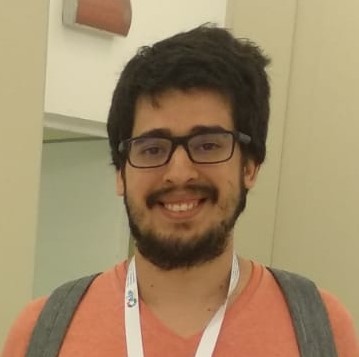
Dr. Eduardo Aguilar Torres
U. Católica del Norte, Antofagasta, Chile.
Translation: Remarkable improvements have been evidenced in the last decade with the appearance of deep learning models on a wide diversity of problems. On the other hand, the good performance observed with this type of algorithm is not always reflected when using them in real environments. Particularly for critical problems, it is mandatory to be aware of the reliability given to the predictions generated to avoid catastrophic results. In this talk we will discuss the importance of modeling uncertainty to understand what our model learned or did not learn and also to be able to assign a degree of certainty to our predictions. To do so, we will describe one of the most popular techniques used in the deep learning framework, MC-Dropout, and show in practice its implementation on a well-defined problem.
Eduardo Aguilar Torres is a Doctor in Mathematics and Computer Science from the Universidad de Barcelona under the tutelage of Dr. Petia Radeva. He is a Civil Engineer in Computing and Informatics and a Master’s in Computer Engineering from the Universidad Católica del Norte. He is currently an academic in the Department of Computer and Systems Engineering at the Universidad Católica del Norte. His main interest is in the research and application of Deep Learning algorithms for visual food analysis. He aims to contribute to improving the quality of life of people through the generation of technological solutions based on Machine Learning and Computer Vision.
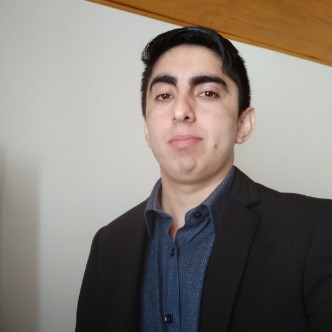
Mg.(c) Luis Rojas Rubio
Universidad Tecnológica de Chile, INACAP, Copiapó, Chile.
Translation: Social networks have become one of the main channels of information for human beings due to the immediacy and social interactivity they offer, allowing in some cases to publish whatever each user considers relevant. This has brought with it the generation of fake news or Fake News, publications that only seek to generate uncertainty, misinformation or bias the opinion of readers. It has been shown that the human being is not able to identify in its entirety if an article is really a fact or a Fake News, because of this is that models that seek to characterize and identify articles based on data mining and machine learning arise. The purpose of this talk is to expose part of the thesis work done, which focuses on the characterization of emotions and intentions in Fake News. In particular, a framework that allows to identify the emotions present in a set of publications of a given domain will be presented.
Luis Rojas Rubio is a Civil Engineer in Computing and Informatics and holds a degree in Engineering Sciences from the Universidad Católica del Norte. He currently teaches in the area of Information Technology and Cybersecurity at the Technological University of Chile INACAP and is a candidate for a Master’s degree in Computer Engineering at the Catholic University of the North, whose research objective is to contribute to the characterization and recognition of Fake News.
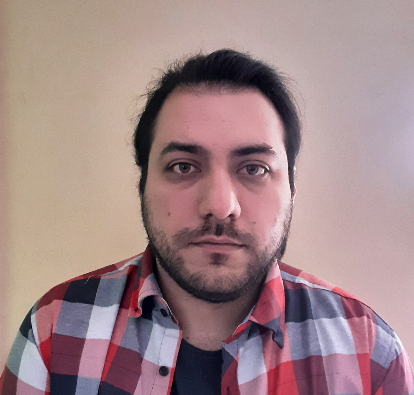
Ing. Pablo Julio Vitalic
U. Católica del Norte, Antofagasta, Chile.
Translation: This presentation deals with the analysis of social networks, in particular Twitter, to model the opinions and perceptions of the Chilean population in the face of the pandemic phenomenon resulting from Covid-19 that affected and continues to affect the country as of March 2020. The knowledge derived from these analyses and models serves to understand the dynamics of the phenomenon, e.g., expressed feelings, and can be used for decision making, particularly in the public sphere. For this purpose, a method adapted from the scientific method and techniques of natural language processing, data mining and machine learning were used.
Pablo Julio Vitalic is a Civil Engineer in Computing and Informatics and holds a degree in Engineering Sciences from the Universidad Católica del Norte. He is currently a part-time professor in the Department of Systems and Computer Engineering at UCN, Antofagasta, Chile.
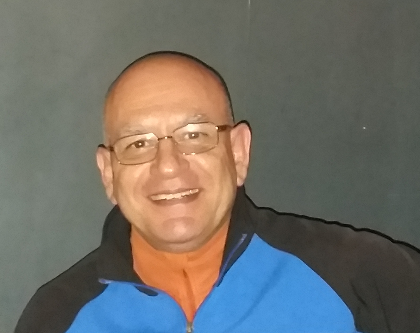
Dr. Iván Jirón Araya
U. Católica del Norte, Antofagasta, Chile.
Translation: This paper introduces the fundamentals of public-key or asymmetric cryptography, the concept of cybersecurity and artificial neural networks. It then explains how artificial neural networks are used to implement the Diffie-Hellman key exchange protocol.
Iván Jirón Araya is a full time professor at the Mathematics Department of UCN, Antofagasta, Chile. He obtained the degree of Doctor in Engineering, mention in Automatics, from the Universidad de Santiago de Chile, the degree of Licenciado in Mathematics and the degree of Magíster en Ciencias, mention in Mathematics, from the Universidad Católica del Norte. His research interests are related to cryptography, cybersecurity and artificial neural networks.
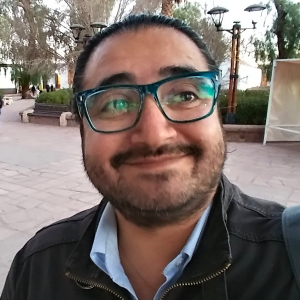
Mg. Diego Urrutia Astorga
U. Católica del Norte, Antofagasta, Chile.
This talk will present the work in progress of the Vertientes del Desierto project, which seeks to propose a regression model to predict the different operational variables that influence the performance of a reverse osmosis plant. The application of the data science life cycle, the results obtained and the different areas that are being explored will be presented.
Diego Urrutia Astorga is a full time professor in the Department of Computer and Systems Engineering at UCN, Antofagasta, Chile. He obtained his Master’s degree in Computer Engineering and the degree of Ingeniero de Ejecución en Computación e Informática, both from the Universidad Católica del Norte. His research interests are related to Software Engineering, High Performance Computing and Big Data.
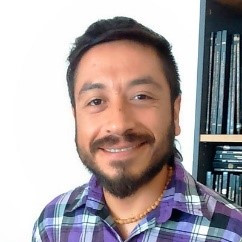
Dr. Carlos Calderón Carvajal
U. Católica del Norte, Antofagasta, Chile.
Translation: Dementia considers a wide variety of conditions characterized by a progressive deterioration of cognitive ability. Previous studies have shown important benefits associated with early detection and treatment. Among the main difficulties is the development of screening instruments that are simple, inexpensive and widely used, and their ability to differentiate the natural deterioration resulting from aging from early stages of development of the clinical picture. This paper shows the advantages of the integration of logistic psychometric models and machine learning techniques in the detection of impairment course patterns, from cognitive tests, for the development of cognitive diagnostic tools of easy application and wide use both in primary care and non-clinical contexts.
Carlos Calderón Carvajal is Director of Research and Analysis of Scientific Production at Universidad Católica del Norte. He holds a PhD in Methodology of Behavioral and Health Sciences from the Universidad Autónoma de Madrid. His work considers the development and application of Psychometric and Structural Equation models to a wide variety of fields, such as education, psychology, health, among others.
